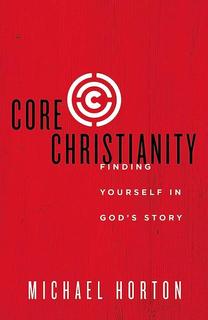When we look to the Scriptures, Paul makes it clear that there’s a distinction between the foundation-laying era of the apostles, and the era of building on that foundation. We see examples of this in extraordinary ministers like Paul, and ordinary ministers like Timothy. Paul himself never says that he’s guarding a deposit, but that he’s contributing to the deposit of the faith, that is the Scriptures. But he tells Timothy to guard the deposit. Timothy isn’t adding to the deposit, he’s not expanding the canonical Scriptures. Paul, Peter, and John were all writing inspired Scripture, but a transition happens in the church where ordinary ministers, like Timothy, are no longer writing Scripture, but guarding it.
Paul talks about this foundation 1 Corinthians 3:11–13:
For no one can lay a foundation other than that which is laid, which is Jesus Christ. Now if anyone builds on the foundation with gold, silver, precious stones, wood, hay, straw—each one’s work will become manifest, for the Day will disclose it, because it will be revealed by fire, and the fire will test what sort of work each one has done.
This foundation he’s talking about here is namely that which the prophets and apostles have built before them. He references this same foundation in Ephesians 2:20, stating that the church is “built on the foundation of the apostles and prophets, Christ Jesus himself being the cornerstone.”
Prophets Throughout Scripture
If we look back to the Old Testament, there were indeed prophets—some of which spoke God’s word, but some of which also led God’s people astray. This is why the Israelites were called to test the prophets. There were of course the prophets, whose prophecy was considered the infallible, inerrant revelation that we find in the Bible.
Turning to the New Testament, we see the same phenomenon. There were the prophets—namely, the apostles—appointed directly by Jesus Christ to speak authoritatively in his name, under the Spirit’s inspiration. Then there were also ordinary prophets that the Spirit led to speak God’s word in certain situations. Other prophets are also mentioned, although what they actually prophesied isn’t written. We aren’t to question God’s prophets, but the prophets in the book of Acts were fallible and had to be tested.
So Are There Prophets Today?
Many people will point to Ephesians 4:11–14 as proof that prophets and apostles still exist today:
And he gave the apostles, the prophets, the evangelists, the shepherds and teachers, to equip the saints for the work of ministry, for building up the body of Christ, until we all attain to the unity of the faith and of the knowledge of the Son of God, to mature manhood, to the measure of the stature of the fullness of Christ, so that we may no longer be children, tossed to and fro by the waves and carried about by every wind of doctrine, by human cunning, by craftiness in deceitful schemes.
Something important to note here is that it says he “gave” apostles and prophets, using the past tense. I think he gave them but doesn’t keep giving them. Just as there are no more apostles, there aren’t any prophets today in the way that there were when Christ was just beginning to build his new covenant church. We have God’s written New Testament now. The foundation has been laid. There’s no need for growth of that foundation—it has been laid, and now we’re building on it. To build on that foundation, the offices of evangelists and pastors continue today. Elsewhere Paul also mentions elders and deacons, but in this passage of Ephesians, he’s focusing particularly on the ministry of the word, because that ministry of the word through preaching and teaching is what creates, builds up, and expands Christ’s body.
It’s also worth noting that in 1 Timothy 3 and Titus 1, when elders and deacons are discussed as an office that will continue in the church, we see a list of qualifications for those offices. We don’t see that same list of qualifications for prophets or apostles, because Paul realizes that these extraordinary offices were only for that foundation-laying period of the church. I really think what Paul is saying here is that prophets and apostles were necessary to bring the church to maturity—to adulthood. Now what we need are pastors and teachers to lead us through those Scriptures, who build on that foundation so that we will stand on the day of Jesus Christ.
A particularly useful passage that isn’t mentioned as often in this conversation is found in Daniel 9:24 that reads, “Seventy weeks are decreed about your people and your holy city, to finish the transgression, to put an end to sin, and to atone for iniquity, to bring in everlasting righteousness, to seal both vision and prophet, and to anoint a most holy place.” Putting an end to sin and atoning for iniquity—these are what Jesus himself accomplished on the cross. In the accomplishment of redemption and the work of Jesus Christ, there’s no need for new revelation. It’s sealed up. What we need in the church today are pastors and teachers who are faithfully going to take that faith—once for all given to the saints—to the world and build on that foundation.
This article is part of our Frequently Asked Questions series. Listen to Michael Horton answer this question on Core Radio here.






